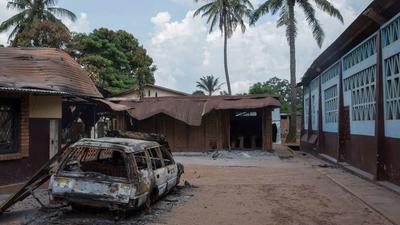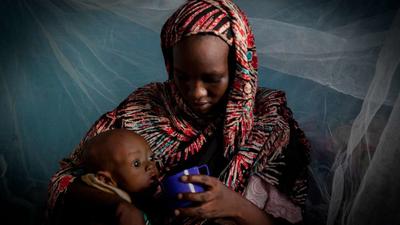Last week’s attack by Boko Haram on the town of Baga, in which a large number of people were believed to be killed, was the group’s deadliest attack in five years.
Isabelle Mouniaman-Nara, programme manager for Médecins Sans Frontières/Doctors Without Borders (MSF) in Nigeria, describes what MSF is doing to assist survivors.
“Thousands of people have fled their homes in Baga. Some are believed to be hiding in the bush, while others have reached the city of Maiduguri.
Because of the security situation, our teams are currently unable to reach the Baga area to assess people’s medical and humanitarian needs. But we are working in Maiduguri, providing assistance to survivors of the attack.
Survivors sheltering in Maiduguri
Some 5,000 survivors from Baga are sheltering in a camp in Maiduguri known as ‘Teacher Village’, while others are staying on the shores of Lake Chad. Mainly they need food, shelter and medical care. There have also been reports of violence against women and children.
We have donated food, drugs and medical supplies to the health centre in Teacher Village, which was running short of supplies, and we will also provide medical support, with a focus on the health of pregnant women and children, who are particularly vulnerable.
We will be focusing on treating child malnutrition, providing antenatal consultations and assisting deliveries for the many pregnant women in the camp, as well as providing basic healthcare.
At the same time, we will closely monitor the situation in the camp and the numbers of displaced people, and adapt our activities according to their needs.
Healthcare in short supply
We’ve been working in Maidaguri since August. The situation in Maidaguri is tense after a bomb attack on the city’s market on 10th January, which killed 20 people.
Five terrorist bombs exploded in Maiduguri in 2014, killing and wounding large numbers of people. Boko Haram has attacked the city twice. Other attacks are to be expected and the presidential elections next month may well lead to renewed tensions and violence.
All but one of the roads into Maiduguri are closed. The restrictions on people’s movements are hindering trade and damaging the local economy.
There is very little healthcare available in Maiduguri – either for locals or for the displaced people sheltering there. In fact there’s very little medical care across Borno generally – there are only two doctors in the entire north of the state.
More help needed
There are already between 800,000 and 1.5 million displaced people in Nigeria, most of them in the northeast of the county.
In Maiduguri, there are an estimated half a million displaced people. Ninety percent of them are living in the community, and the remaining 10 percent – most of them villagers who have fled attacks by Boko Haram – are sheltering in 10 camps set up last July.
So far, the Nigerian government and the community have been responding to the needs of the displaced people, at least partially. But if, as we expect, their numbers increase further over the coming weeks and months, they are going to require even more help.
Situation getting worse
Since August we have been running clinics in two of the largest camps for displaced people in Maiduguri, providing some 850 consultations a week, and now we are setting up operations in a third camp.
Most patients are suffering from malaria, diarrhoea and respiratory infections. We are also seeing children with severe malnutrition, as well as victims of violence. After cholera broke out in Maiduguri last September, we treated more than 6,800 patients.
The situation in northeast Nigeria is getting worse. Boko Haram is becoming increasingly radicalised, and its strategy has changed – now it is carrying out mass kidnappings and seizing control of whole towns and cities.
This is likely to result in even more people being forced to flee their homes, as well as difficulties providing medical care, with consequent public health issues, most notably the risk of epidemics.”





